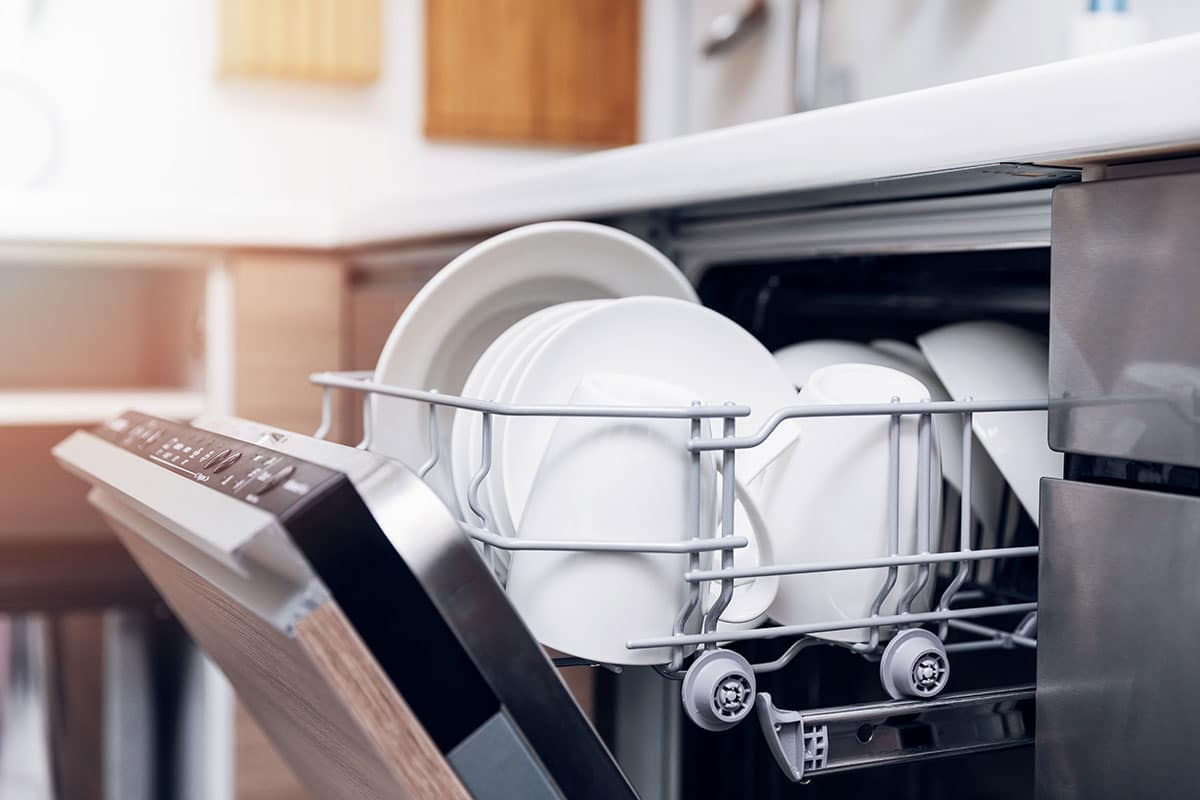Without your time-saving, high-tech dishwasher, it’s difficult to imagine hosting a houseful of visitors or simply living with a family’s worth of dirty dishes every day. You can assume that your dependable machine will keep running no matter how many times you load its racks and press the Start button. Of course, this isn’t the case. The dishwasher may have a variety of issues, ranging from poor efficiency to poor drainage.
Have you been continuing to disregard a little puddle of water on the floor after each wash cycle? If your dishwasher starts to leak, don’t risk serious water damage to your floor or having to wash your dishes by hand; instead, find out one of these five causes is to blame and have it repaired professionally.
First and foremost, make sure you unplug the dishwasher and switch off the electrical circuit breaker that controls the kitchen unit before you begin poking around with the electrical components. Make sure the water valve (under the kitchen sink) is locked when you’re at it. But, before all this happens, let’s discuss some common issues homeowners have with a leaky dishwasher.
- Your dishwasher gasket does not entirely seal. One of the most frequent causes of dishwasher leakage is a failing gasket seal around the edge of the appliance’s door. Its rubber material works well to hold water inside the unit when it’s fresh and supple, but after years of use, it can dry out, become brittle, and break. Dried foods may also accumulate around the gasket tip, preventing the door from closing flush with the window.
- The spraying arm inside needs to be repaired or replaced. On the interior floor of your dishwasher, the spray arm spins during the wash and rinse cycles and sprays water onto the dishes. However, in an overcrowded or incorrectly loaded appliance, utensils and dishes may block the arm from rotating properly or cause it to become dislodged, even damaged after years of use, which leads to leaks.
- The float switch is not cutting off all water. During the wash and rinse processes, a float system with a float and float switch is used to control the correct water level. When the water level in your dishwasher rises, the float rises with it. It activates the float switch, which turns off the water as it exceeds a certain height. If the turn fails, the water level will rise to dangerous levels, resulting in a leak in the dishwasher.
- A loosened or damaged drain hose cannot remove all water. The drain hose transfers water from the dishwasher to the drain pump, drain line, and then out of the sink drain, which is only apparent after removing the kickplate panel at the appliance’s foundation. The dishwasher can leak water into the floor until it exits from the end of the line because ties may become loose or the hose itself may break or break.
Ultimately, if you know you have a leaky dishwasher, and you aren’t sure what to do to remedy the issue, call Bison Plumbing and have one of our plumbers come fix it. You could be having issues with pooling water either around your dishwasher or within its pipe or line connections, and these issues can sometimes multiply and affect other things in your home. Don’t wait for disaster to strike before you give us a call. Catch the issue today by having our Bison plumbers fix it right up for you!
Bison Plumbing: The Best Local Plumbers in Warren, MI
Bison Plumbing has been providing professionally insured, approved local plumbing services for homes and businesses with an unrivaled customer experience since 1998. To have the best service to our loyal clients, we only use the best parts and materials available. We are always making sure to stay ahead of the curve and regulated with all current mechanical codes and regulations set by the state of Michigan.
When Bison Plumbing is on the job you can rest assured that your job will be done right, on time, and for a fair price. We do all kinds of plumbing repairs, drain snaking and remedying clogged drains, sewer line replacement, and sewer repairs, rooter work, and more expertise performed by our local plumbers.
With your help and a little hard work, we can help keep our systems and infrastructures efficient for generations to come. Give us a call today at (586) 754-4281 or fill out our contact form for more information!



